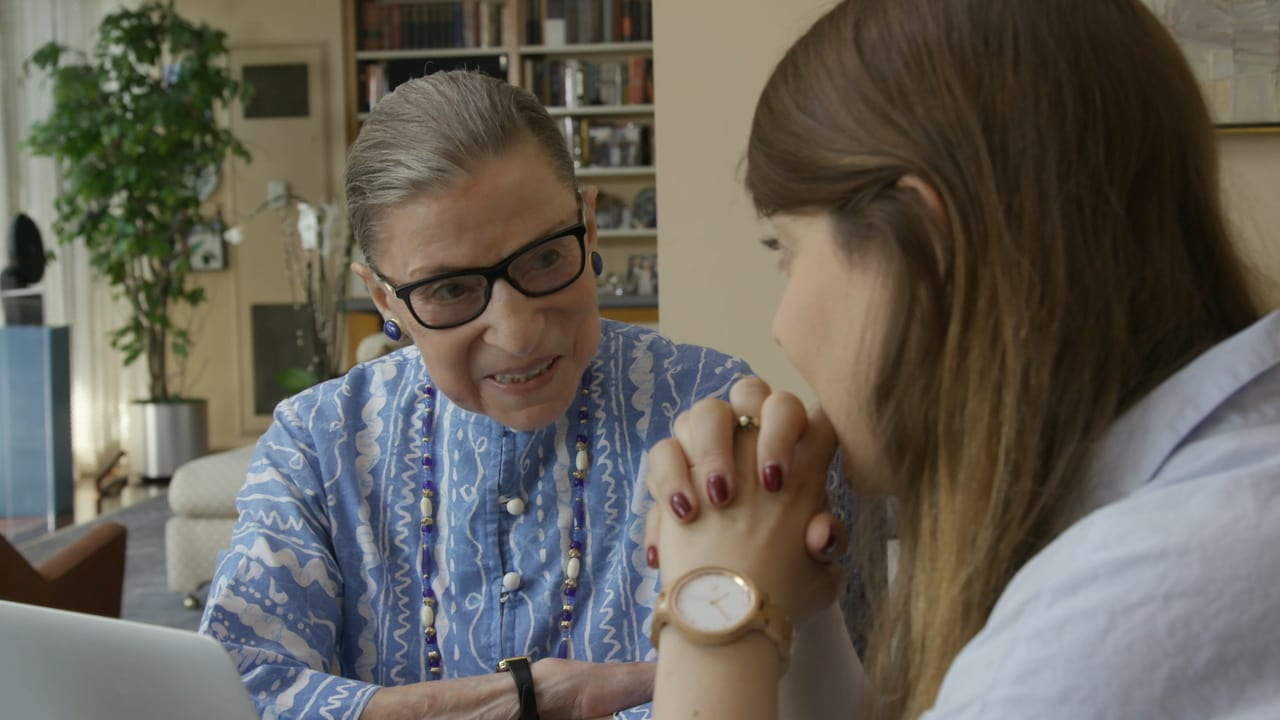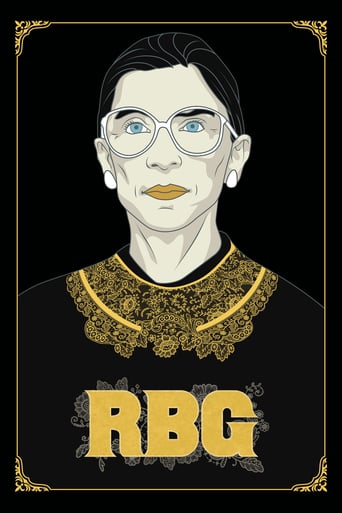

RBGBeing an impartial judge means you can look beyond the wet T-shirt and see the person wearing it.Unfortunately, sexist bar contests are absent from this documentary on arbitrating.A staunch defending of equal rights, Ruth Bader Ginsburg made a name for herself early on working cases concerning discrimination against women in the military and equal social benefits for single fathers. Her social crusading, and tenure as a tax attorney, made her the ideal candidate for then-President Bill Clinton's Supreme Court Justice appointment. Since then, RBG has gone on to become a feminist icon.While it certainly provides an informative overview of RBG's illustrious career on the bench, it is her personal life, specifically with the moments involving her late husband that truly captures the humour and spirit of this feisty humanitarian.Incidentally, once women were on the Supreme Court male justices had to start wearing clothes under their robes. Green Lightvidiotreviews.blogspot.ca
... View MoreRBG is a documentary directed by Julie Cohen and Betsy West.Ruth Bader Ginsburg is a remarkable Supreme Court justice. This is a remarkable documentary about her life as a justice and about her life as a person. This is a must-see movie for everyone, but, if you're not reasonably progressive you probably won't enjoy it.Ginsburg stands up for truth, justice, and fairness. As the Supreme Court turns further and further to the right, Ginsburg is more and more isolated. As I write this review, President Trump is trying to force her to resign. I don't think she will.
... View MoreYou can disagree with Ruth Bader Ginsberg all you want, but it's hard to refrain from agreeing that this is a well-made documentary. Recommended.
... View MoreInspiring, moving, empowering, loving. Everyone in our crowded theatre wildly cheered and clapped for Justice Ginsburg! The RBG movie shows what a brilliant, caring and determined woman has done and is doing for democracy. Beautifully made, grippingly paced, a remarkably emotional portrayal of Justice Ginsburg's dedicated and powerful lifetime working for women's rights and equality for all.
... View More